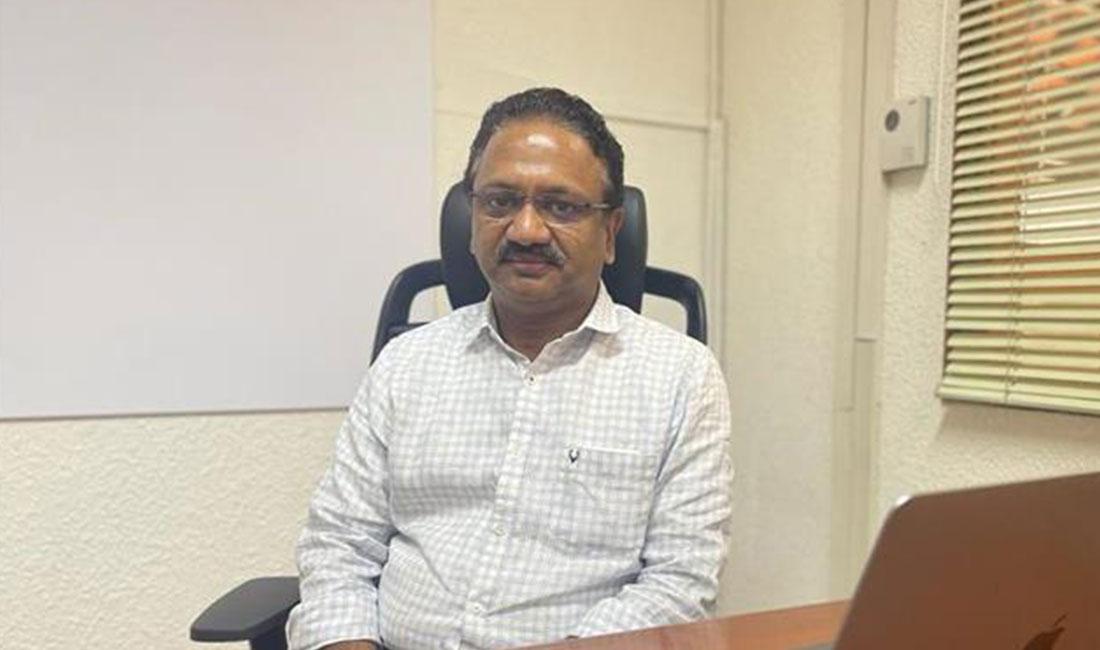Attention
This website is best viewed in portrait mode.
Publication Name: DIGITIMES Asia
Date: March 15, 2022
India's Tata Elxsi to build EV ecosystem with Japan's Renesas

The Indian design and tech service provider Tata Elxsi aims to build an EV ecosystem in India with the Japanese semiconductor company Renesas. The two companies had recently announced plans to set up an innovation center that focuses on automobile electrification products, toward this end.
Tata Elxsi has been working with Renesas for over a decade, mainly focusing on the console safety side, the MCAL, the maintenance of MCAL, etc. Speaking to Digitimes Asia recently, Shaju S, VP and head of transportation business unit at Tata Elxsi, explained that the latest initiative took shape from the current global interest in EVs.
"If you look at the market trend today, there is huge investment happening in electrification and a marked push from almost all the governments across the globe to encourage it," Shaju said. "Looking at the kind of investments happening and the way the market is shaping it, we decided it is high time to get into this segment. But rather than do it on our own alone, we decided that it is worthwhile to have a strong partner who can come along and fill some of the gaps that we may have."
As an engineering services company that doesn't do microcontrollers and production, Tata Elxsi needed a semiconductor solutions provider who shared similar goals at this stage. Factors such as government initiatives that promote local manufacturing encourage the company to move forward.
"We discussed with Renesas, and they were also quite keen on this initiative because, like any other company associated with automotive, they are also focused on electrification," Shaju continued. "That was the primary thought process. Now, the other aspects – the Indian government is pushing electrification like any other government. Also, there is a huge push on Make in India. We saw these as advantages and decided to set up a joint innovation center which will focus primarily on electrification products."
To 4-wheel EV and abroad
The initiative will focus on two-wheelers and light commercial vehicles initially because these are two segments in India where electrification has made steady inroads in recent years. Eventually, Tata Elxsi wants to move to larger vehicles and even overseas markets.
"To start with, we are looking at India market and looking at doing R&D and solution accelerator development focusing on two-wheelers and light commercial vehicles, which seems to be the focus in India right now," Shaju added. "Whether it's the FAME scheme [Indian government's EV subsidy program] or other industry support schemes, it is mostly focusing on two-wheelers and light commercial vehicles now, and so that is where we are getting started. But obviously, the intention is to look at the larger market with four-wheelers, etc., and even outside India as the next step."
Elxsi's IP strength
Renesas's statement mentioned that the two companies would bring together their deep domain knowledge, intellectual property (IP), and assets to create reference designs and solution accelerators for critical EV subsystems like battery management systems and motor control units. Elxsi's IP strength in EV stems from years of experience developing test automation frameworks and components.
"Our first electrification project was probably around years back with one of the Tier 1 customers," Shaju said. "But the real focus on electrification started about five years back where we started investing heavily in developing solutions and systems. A major investment I could point out is eMobility HILS, which we set up about a year and a half back and started servicing various customers. This is basically a full-fledged test automation framework, which can be used for testing all sorts of electric components that go into an electric vehicle. We can also test the entire system using this framework. Significant investment has gone into it, and we are still investing and developing that."
The company has also developed several EV components like battery management system algorithms and a power combo box design. These are some of the intellectual properties that Tata Elxsi brings to the table in the partnership with Renesas.
Challenges in the market
India's EV market is definitely on the rise. While it brings several business opportunities, companies have to deal with certain challenges too. The biggest among these challenges is the rapid evolution of technology.
"The technology is evolving – that is going to be the biggest challenge," Shaju said. "The demand is going to be high in terms of cost and speed to market. These are some of the things we are trying to address in this collaboration. On the one hand, the Indian market is very cost-sensitive. On the other, we need to be fairly quick in turning this design around and making it production capable."
The company expects to face more challenges as they take this initiative to global markets. These include the different standards for components like charging equipment.
Working with OEMs and creating an ecosystem
Tata Elxsi will now work with OEMs of two-wheelers and light commercial vehicles in India. Shaju said they have yet to take this design to anyone but have started interacting with some customers. Eventually, the goal is to make an end-to-end ecosystem that will cater to all the requirements for electric vehicles.
One of the main challenges that EV companies in India face is the lack of an ecosystem. There are several EV scooter manufacturing companies, but not enough charging stations, not enough component providers, and definitely not enough service providers. Building an ecosystem becomes crucial in this context.
Reposted from DIGITIMES Asia




